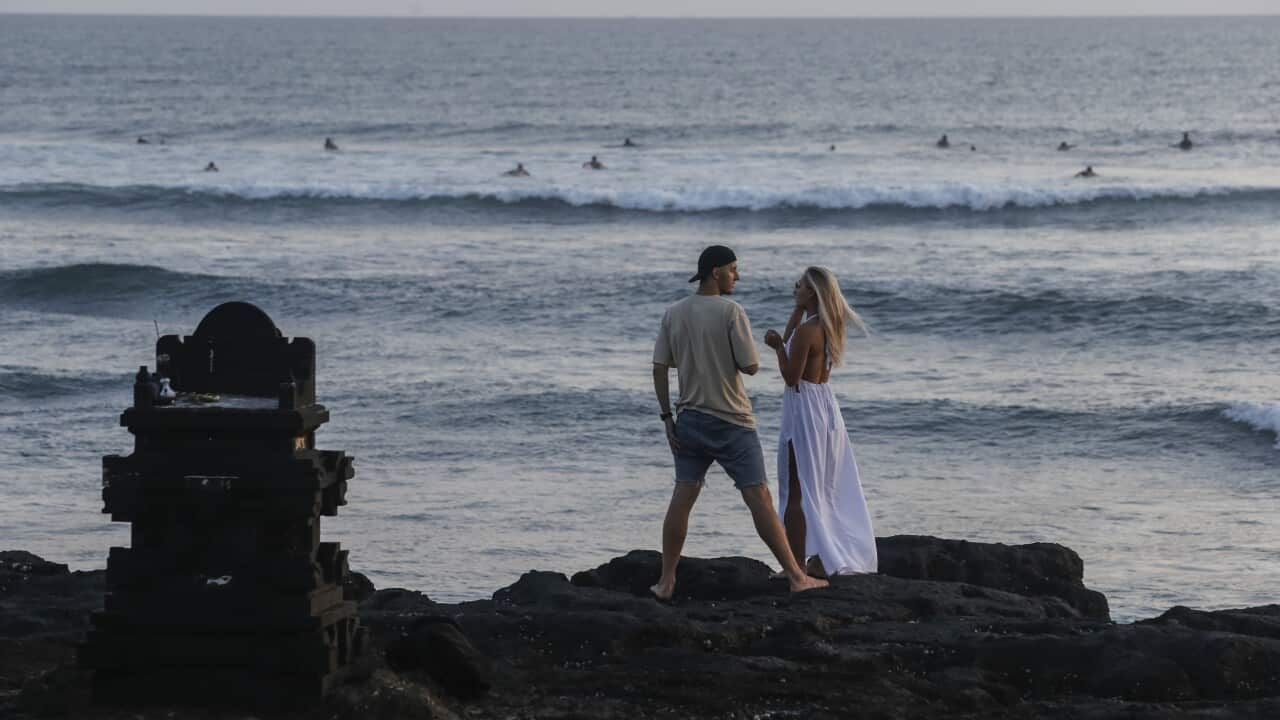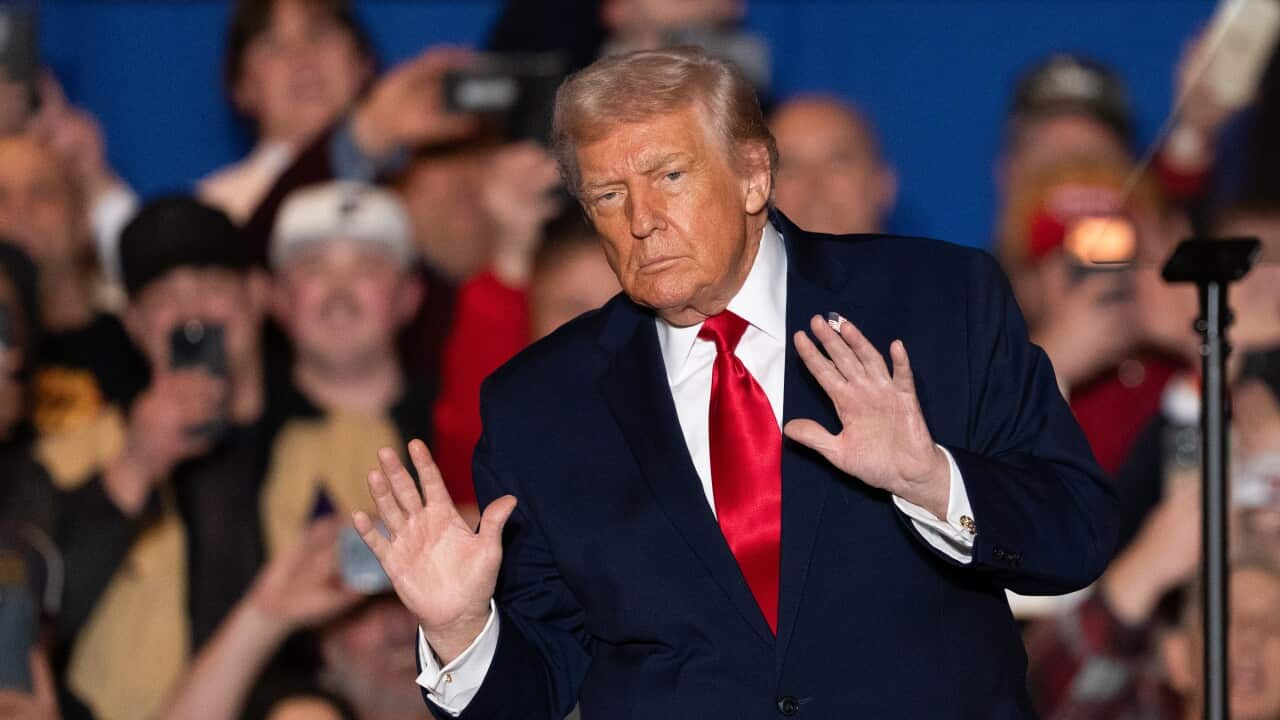Iranian President Masoud Pezeshkian says the U.S. attacks on the country's three nuclear facilities show the United States is the "main factor" behind Israel's hostile actions against Iran.
Iran says any option for diplomacy can only be considered after Iran's armed forces retaliate to the U.S. strikes.
Iranian Ambassador to the UN, Amir Saeid Iravani, says the details of how that will unfold are being worked out right now.
"The timing, nature, and the scale of Iran's proportionate response will be decided by its armed forces. Throughout history, the resilient and united Iranian nation has withstood deeper wounded; and faced more vicious enemies. And this time It will show its dignity, strength, and greatness to the world."
The Pentagon says it will take time to fully assess the effect of the attack - which included the use of 14 large bombs called bunker busters - adding initial analysis shows the sites sustained "extremely severe damage".
Satellite images of the before and after, show damage to Iran's second nuclear enrichment facility, Fordo, built into the side of a mountain.
A layer of ash caused by the airstrikes can be seen covering a large area.
The images by Maxar Technologies also show several large craters on the top of the ridge over the underground complex.
—
Meanwhile, Israel and Iran continue to exchange missile strikes, extending into a second week.
At Turkey's border with Iran, Iranian citizen Ferishteh Husseini says residents are leaving Tehran, following a warning from Israel for citizens to evacuate the city.
"The war should end. Now the U.S. have also been included. This war should end. If not, it will be very bad for people. Everyone lives in groups of 10-20, in the same house. But supplies are running short."
Israel's military says it has responded to the 21st ballistic missile launch from Iran - since Israel's pre-dawn attack 11 days ago (13 June).
Some missiles have bypassed Israel's air defence, with 10 different instances of missiles making impact in the last 24 hours.
In Jerusalem, Carol Avishay says she anticipates the next few days will be an anxious wait as they brace for Iran's retaliation.
"It's going to be rough. The two-four (next) days if there have been left any missiles or whatever. They're going to be rough. We have to be very careful, very alert. And I think after that, it's going to be quiet and peaceful and we can sleep at night."
—
Prime Minister Anthony Albanese is holding a national security committee (23 June) to discuss Australia's formal response to the U.S. strikes on Iran.
Foreign Minister Penny Wong says Australia supports the U.S. action, but says the next steps should be focused on dialogue and diplomacy.
She says the operation to evacuate Australians in Iran and Israel remains difficult, and reports of the airspace reopening in Israel is a positive development.
"What happens now matters. We do not want to see escalation. We do call for diplomacy, de-escalation and dialogue because the world does not want to see a full-scale war in the Middle East. We have deployed Australian officials to the Azerbaijani border, so if Australians do get there, we can provide them with support. In relation to Israel, there are reports that the airspace may open for a limited period. This is very fluid. But we are seeking to make arrangements to utilise that window, if we are able."
(About 2,900 Australians in Iran - and 1,300 in Israel - have registered their interest in being evacuated from the region.)
—
The federal government is being urged by the Greens to disclose whether the satellite surveillance base at Pine Gap in the Northern Territory was used in the U.S. strikes against Iran.
Greens defence spokesperson David Shoebridge says Australia should take immediate steps to distance itself from the U-S over the strikes - describing the development as a dangerous escalation.
Independent senator Jacqui Lambie told Channel Nine, she thinks Australia should reconsider having the US military presence in Australia at Pine Gap.
"Well you could do something about that Pine Gap. We don't owe them anything. We're supposed to give them 12 months notice, if we do not want them in Pine Gap. Well, after the way they've treated us. We could pull the rug under them - and start putting the pressure on them. I think it is about time that we did a little retaliation of our own - obviously not war, but letting them know, we're not going to put up with that crap. And we're really good mates of yours, so maybe it is about time that you started to cherish that a little bit more. And started to show us a little bit more respect."
—
In sports, Australian Minjee Lee has won the third golf major of her career, winning the Women's PGA Championship by three shots in Texas.
She is the third Australian female golfer to win three majors, after Karrie Webb and Jan Stephenson.
The victory also ends a 19-month winless run, the longest drought of her decorated career, and cements her status as Australian women’s sport’s highest earner, with a large cheque for $A2.8 million ($US1.8 million).
She paid tribute to her family for their support over the years.
"My parents have sacrificed so much for me to be in this position. So you know I can't more thanks than I have already said - I'm thankful. Yeah, it is extra special that I could win in front of them. And obviously wherever (my brother) Min Woo, he is supporting me out there. And obviously, my dad is back in Oz (Australia). He is tuning in and they have always got my back. So it is really nice - and it is great support - and unconditional."
***










